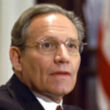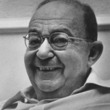The Nixon defense: what he knew and when he knew it
Description
More Details
9780698163461
9780143127383
Table of Contents
From the Book
Excerpt
Similar Titles From NoveList
Similar Authors From NoveList
Published Reviews
Booklist Review
August 2014 will be 40 years since Nixon resigned from the presidency under the threat of impeachment. Two generations of Americans have grown up without experiencing first-hand the steady storm of revelations of Watergate. As Nixon's legal counsel and to an extent his coconspirator, Dean is ideally placed to examine and analyze a massive trove of newly released Nixon recordings covering the period. For those familiar with the scandal and Nixon's role in it, there aren't any shocking new revelations here. What wasn't known was strongly suspected. Still, it is important to be reminded just how venal Nixon and his immediate cabal had become as the walls closed in upon them. Their discussions as they plot out Nixon's defense are amazingly cynical and amoral. Nixon, in particular, confirms both his guilt and his psychological unfitness for office. He appears paranoid and petty, and his defects clearly have overwhelmed his positive traits. Those unfamiliar will benefit greatly from this work, especially since some die-hard Nixon defenders and revisionists still maintain that Watergate wasn't that bad. --Freeman, Jay Copyright 2014 Booklist
Publisher's Weekly Review
The secret conversations of President Richard Nixon chronicle an unfolding scandal in intimate detail in this absorbing history of the Watergate cover-up. Dean (Blind Ambition), Nixon's White House counsel and a central figure in events, recaps hundreds of taped recordings of discussions between Nixon and his aides, many never before transcribed, on the brewing Watergate affair from the June, 1972 break-in at Democratic National Committee headquarters to the July, 1973 dismantling of the recording system. The discussions transition quickly from confusion over the arrest of Nixon campaign operatives to an improvised plot to conceal the burglars' connections to the White House and other Nixon Administration misdeeds through a farrago of hush-money and perjury whose deceptions compound over time. Dean weaves deftly edited excerpts of dialogue and shrewd commentary into a densely detailed but very readable narrative of the conspiracy as its principals cobble it together. He's hardly a disinterested observer; much of the book centers on Nixon's "defense" against revelations Dean offered to investigators-culminating in his sensational televised Senate testimony-and is thus also Dean's defense of his own actions. Still, this is one of the best and fullest accounts of the Watergate cover-up, one that conveys in Nixon's own voice the casual criminality of his troubled presidency. (July 29) (c) Copyright PWxyz, LLC. All rights reserved.
Kirkus Book Review
About that 18-and-a-half minutes oflost tape.In this 40th anniversary year ofRichard Nixon's gloomy evacuation of the White House, former staffer andever since bte noire Dean (Broken Government: HowRepublican Rule Destroyed the Legislative, Executive and Judicial Branches,2007, etc.) defends himself against a category of accusation Tricky Dickfrequently leveled against him: "I'm not going to fire a guy on the basis of acharge made by Dean, who basically is trying to save his ass and get immunity,you see." Well, sure: Dean was and is no dummy, and he saw what was coming inthe grim swirl of the Watergate hearings, during which frequently named figuressuch as Ehrlichman, Haldeman, Hunt, Liddy, Mitchell and Dean himself becamehousehold names. By the author's account, Liddynever likable but alwayshonorable, in his own waytook the fall for the foiled break-in and offered tohave himself shot on any street corner in Washington at the president'spleasure; the president declined, but he schemed and maneuvered in otherdirections. Sometimes, Dean notes, Nixon was brilliant in that maneuvering,turning potential losses into double-edged wins, usually Pyrrhic but stilldamaging to the opposition. This account, drawing on notes, scrawls on legalpads and transcripts of taped conversations, makes an odd but compelling strolldown Memory Lane for those who remember the time. Dean provides deft portraitsof the likes of the unctuous Kissinger, the exceedingly odd Al Haig ("he's alittle bit obnoxious and doesn't wear well with people, which would be goodfrom our point of view"), and Nixon himself. And as for that missing tape, theone about which so much was made at the Watergate hearings? It would spoil thesurprise to tell it here, but Dean has the answers. Essential to anyone's library ofNixoniana. Copyright Kirkus Reviews, used with permission.
Booklist Reviews
August 2014 will be 40 years since Nixon resigned from the presidency under the threat of impeachment. Two generations of Americans have grown up without experiencing first-hand the steady storm of revelations of Watergate. As Nixon's legal counsel and to an extent his coconspirator, Dean is ideally placed to examine and analyze a massive trove of newly released Nixon recordings covering the period. For those familiar with the scandal and Nixon's role in it, there aren't any shocking new revelations here. What wasn't known was strongly suspected. Still, it is important to be reminded just how venal Nixon and his immediate cabal had become as the walls closed in upon them. Their discussions as they plot out Nixon's defense are amazingly cynical and amoral. Nixon, in particular, confirms both his guilt and his psychological unfitness for office. He appears paranoid and petty, and his defects clearly have overwhelmed his positive traits. Those unfamiliar will benefit greatly from this work, especially since some die-hard Nixon defenders and revisionists still maintain that Watergate "wasn't that bad." Copyright 2014 Booklist Reviews.
Library Journal Reviews
Legal counsel to President Richard Nixon, Dean draws on his own transcripts of nearly 1,000 conversations, information secretly recorded by the president, and extensive documents in the National Archives and the Nixon Library to explore the extent of Nixon's involvement in the Watergate scandal. The subtitle poses the crucial question. Just in time for the 40th anniversary of Nixon's resignation; with an eight-city tour.
[Page 56]. (c) Copyright 2014. Library Journals LLC, a wholly owned subsidiary of Media Source, Inc. No redistribution permitted.Publishers Weekly Reviews
The secret conversations of President Richard Nixon chronicle an unfolding scandal in intimate detail in this absorbing history of the Watergate cover-up. Dean (Blind Ambition), Nixon's White House counsel and a central figure in events, recaps hundreds of taped recordings of discussions between Nixon and his aides, many never before transcribed, on the brewing Watergate affair from the June, 1972 break-in at Democratic National Committee headquarters to the July, 1973 dismantling of the recording system. The discussions transition quickly from confusion over the arrest of Nixon campaign operatives to an improvised plot to conceal the burglars' connections to the White House and other Nixon Administration misdeeds through a farrago of hush-money and perjury whose deceptions compound over time. Dean weaves deftly edited excerpts of dialogue and shrewd commentary into a densely detailed but very readable narrative of the conspiracy as its principals cobble it together. He's hardly a disinterested observer; much of the book centers on Nixon's "defense" against revelations Dean offered to investigators—, culminating in his sensational televised Senate testimony—, and is thus also Dean's defense of his own actions. Still, this is one of the best and fullest accounts of the Watergate cover-up, one that conveys in Nixon's own voice the casual criminality of his troubled presidency. (July 29)
[Page ]. Copyright 2014 PWxyz LLCPW Annex Reviews
The secret conversations of President Richard Nixon chronicle an unfolding scandal in intimate detail in this absorbing history of the Watergate cover-up. Dean (Blind Ambition), Nixon's White House counsel and a central figure in events, recaps hundreds of taped recordings of discussions between Nixon and his aides, many never before transcribed, on the brewing Watergate affair from the June, 1972 break-in at Democratic National Committee headquarters to the July, 1973 dismantling of the recording system. The discussions transition quickly from confusion over the arrest of Nixon campaign operatives to an improvised plot to conceal the burglars' connections to the White House and other Nixon Administration misdeeds through a farrago of hush-money and perjury whose deceptions compound over time. Dean weaves deftly edited excerpts of dialogue and shrewd commentary into a densely detailed but very readable narrative of the conspiracy as its principals cobble it together. He's hardly a disinterested observer; much of the book centers on Nixon's "defense" against revelations Dean offered to investigators—, culminating in his sensational televised Senate testimony—, and is thus also Dean's defense of his own actions. Still, this is one of the best and fullest accounts of the Watergate cover-up, one that conveys in Nixon's own voice the casual criminality of his troubled presidency. (July 29)
[Page ]. Copyright 2014 PWxyz LLC





























